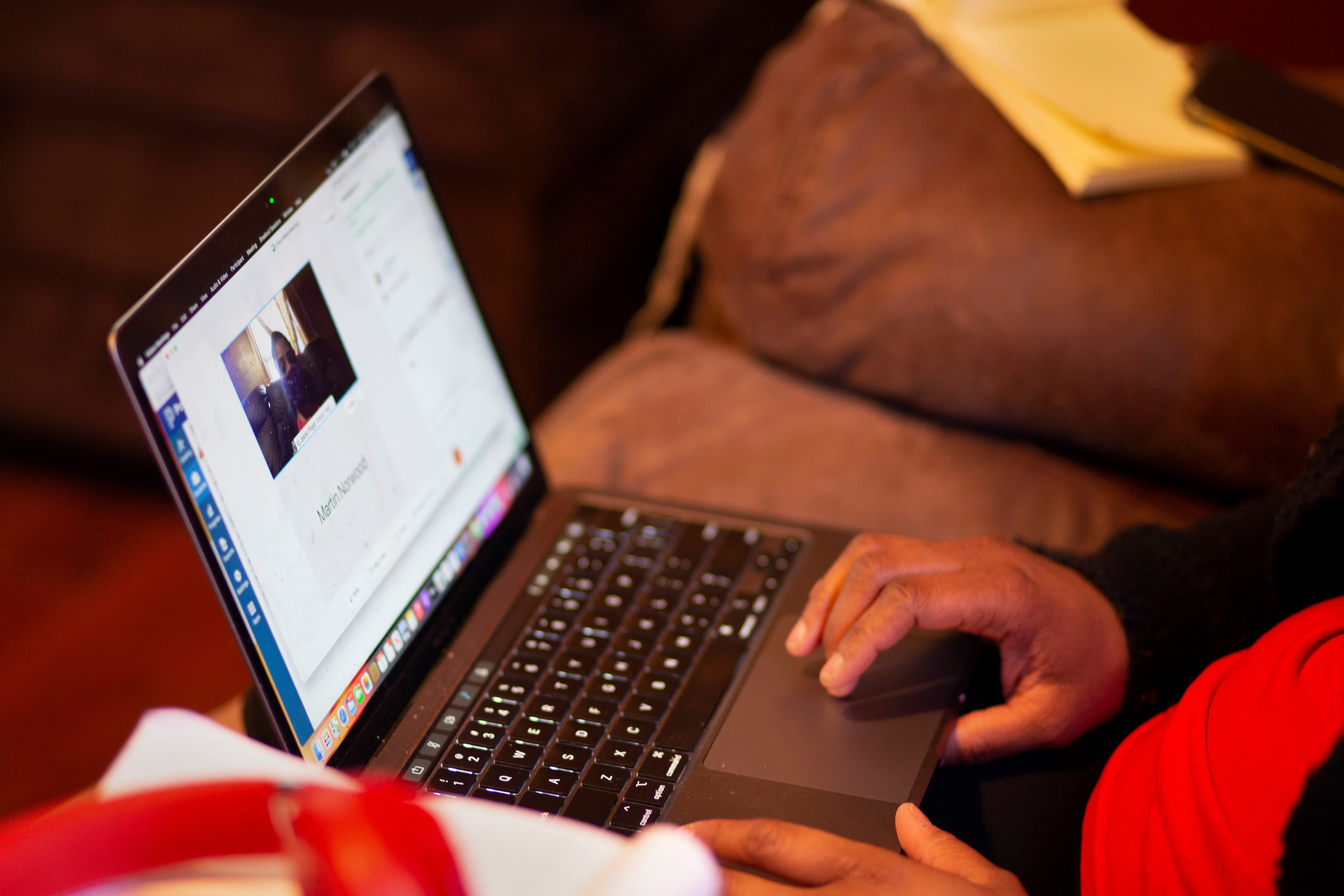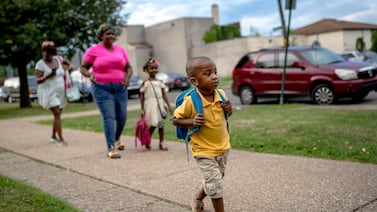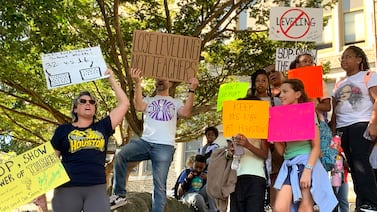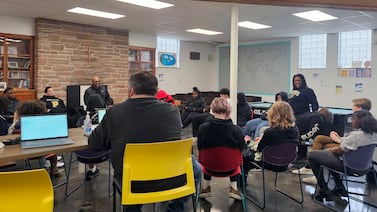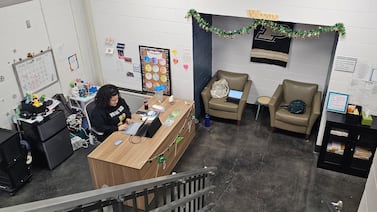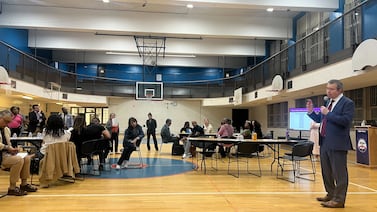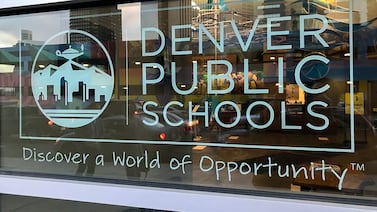Chicago Public Schools agreed to hire more custodians, increase school surveillance testing, and set up a campus vaccine clinic at a South Side elementary school after teachers moved to remote learning following a colleague’s death from COVID.
In an effort to call attention to COVID cases at Carnegie Elementary School, teachers taught remotely for two days without permission. They returned to the campus Friday morning.
In a letter released Friday by the teachers union, the school district’s chief labor relations officer, Kaitlyn Girard, said that CPS agreed to offer more testing, provide home testing kits to unvaccinated students, and host a vaccination clinic on Monday at the South Side school.
The district also said it planned to hire more janitorial support and provide additional cleaning resources.
How the teachers’ refusal to teach in person at one school — and the district’s stepped-up response — could affect broader efforts around testing, vaccination, and cleaning remain to be seen.
“This week, Carnegie showed our union and our city what real sacrifice looks like, and that leadership will inspire more schools to stand just as strong for the safety of their students and colleagues,” teachers union President Jesse Sharkey said.
At Carnegie Elementary, where staff and students are mourning the death of jonL Bush, a special education assistant, quarantine numbers have increased from five on Nov. 27 to 113 as of Dec. 5, city data show. The school has recorded 29 COVID cases since the start of the school year, with 20 of those since Nov. 22, according to data from Chicago Public Schools.
In a statement Friday, Chicago Public Schools offered its condolences to Bush’s family, friends and colleagues, calling the educator a “valued colleague” of the Carnegie community.
“This employee’s death late last month has shocked and grieved us all,” the district said.
Since the outset of school reopening, union leaders have called on the district to come up with a metric for when to shut down a school if there is an outbreak. In October, Illinois State Board of Education defined a school outbreak as multiple cases comprising at least 10% of students, teachers or staff within a core group.
Chicago Public Schools spokesperson Mary Fergus said the district had investigated recent cases at the school and “found no evidence of widespread or unchecked in-school transmission,” and cited “strong layers of protections” at the school.
In a statement, district officials confirmed the letter shared by the union, saying they had conducted “extensive surveillance testing” over the past two weeks and would continue making school-based testing available through the end of the year, as well as providing a school vaccination clinic in December and January.
“This elementary school is open; there is no public health recommendation or requirement to close this school. CPS and Chicago Department of Public Health will continue to monitor cases and testing results closely and will communicate any updates,” the statement said.
In responding to the union’s demand, Girard, the chief labor relations officer, said that CPS would continue reviewing when an “operational pause is needed at a school, given that particular school’s circumstances.”
Bush, who was fully vaccinated and had received his booster, was diagnosed with COVID-19 on Nov. 23 and died Nov. 26, according to his family and the Cook County Medical Examiner’s office. It’s not clear whether Bush contracted COVID at the school.
During a vigil Thursday evening, the educator’s family members called for more protections to be implemented to prevent the loss of another life.
Dette Bush, his sister and a Carnegie substitute teacher, said the conditions at the school were unsafe. After her brother’s death, she said she wouldn’t be returning until she “sees some changes.”
Second grade teacher Faith Mitchell said she and her colleagues were taking a stand by working remotely, without permission, for a lack of resources and to do what’s best for students and teachers.
“We’re still doing what we’re supposed to do, and I think the thing that inspired most of us to walk away is the fact that nobody from CPS even came out to see if any of us were OK,” Mitchell said. “Nobody gave their condolences.”
“We hope we inspire other schools, who we know are dealing with the very same issues and they shouldn’t have to,” Mitchell said. “Nobody should have to beg and plead and almost give up their jobs to make the stance that we deserve more. We deserve better.”
Speaking this week at a press conference about safety protocols, the educator’s mother, Claudette Bush, remembered her son as someone who loved and was good at his job.
“I’m not just hurt,” she said. “I’m angry.”
The death has brought fresh urgency to lingering safety concerns, teachers and union officials said.
Lisa Coleman, a math teacher at the school, said during Monday’s press conference that she feared for her life walking into the school building.
“I think we have a problem,” Coleman said. “I need for CPS to understand that we need to be proactive, not reactive. Let’s not wait until another Mr. Bush happens. Let’s do something and let’s do something now. We need to be on remote learning.”


